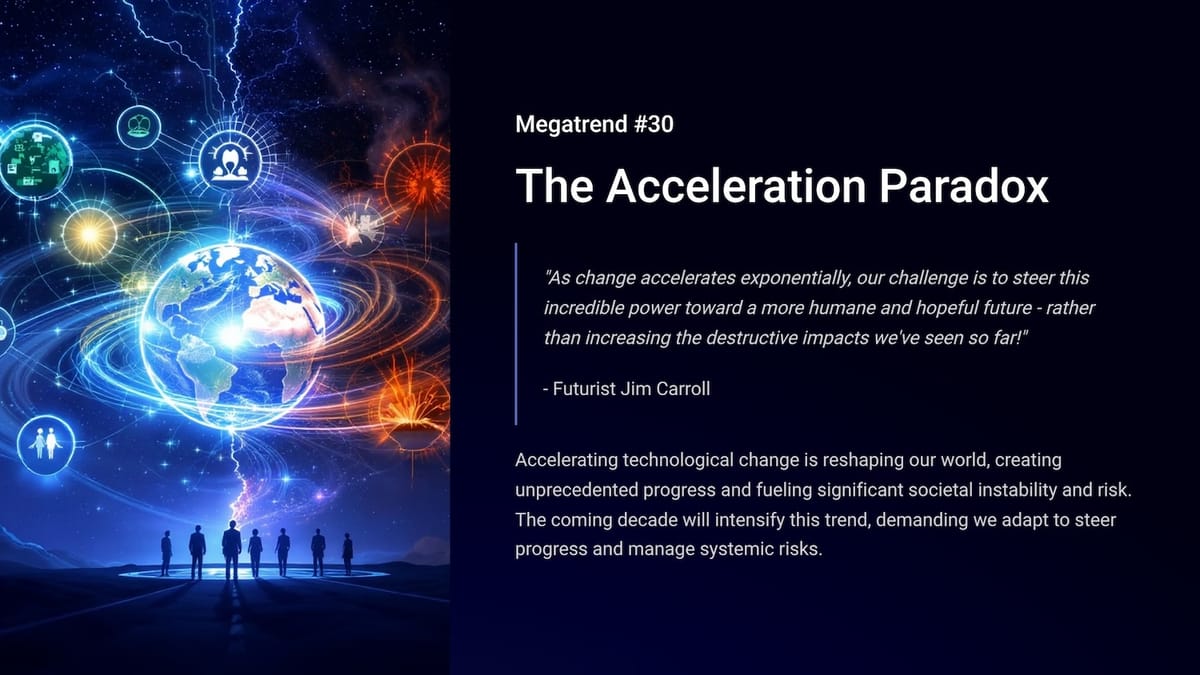"As change accelerates exponentially, our challenge is to steer this incredible power toward a more humane and hopeful future, rather than increasing the destructive impacts we've seen so far!" - Futurist Jim Carroll
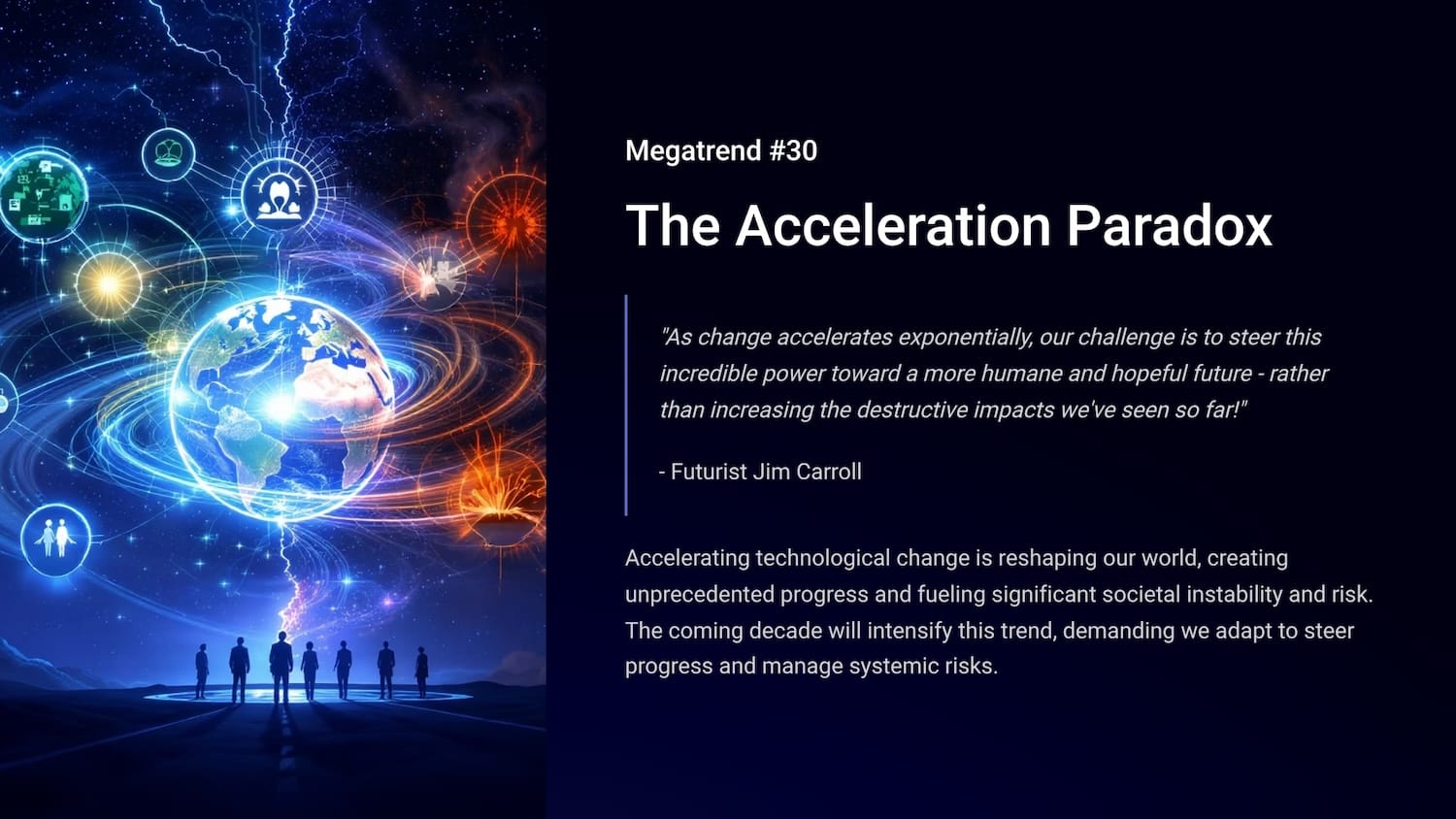
(Futurist Jim Carroll is writing a series on 30 Megatrends, which he first outlined in his book Dancing in the Rain: How Bold Leaders Grow Stronger in Stormy Times. The trends were shared in the book as a way of demonstrating that, despite any period of economic volatility, there is always long-term opportunity to be found. The book is now in print - learn more at dancing.jimcarroll.com)
We live in a time of incredible promise and yet one of terrible peril.
We are the most advanced species we have ever been, and yet, we are ultimately capable of not living up to the demands for success that history places upon us.
It seems that we are failing the test.
As someone who has built his career on. The issue of speed - how leaders can align to it, companies can adapt to it, and people can respond to it - I thought it fitting that the final megatrend in my series should have to do with this issue. Right now, accelerating technological change is reshaping our world, creating unprecedented progress and fueling significant societal instability and risk. The coming decade will intensify this trend, demanding we adapt to steer progress and manage systemic risks.
So what's it all about? The world is changing at an unprecedented pace, a phenomenon I call the Acceleration Paradox. We are witnessing not just incremental progress but an exponential surge in technological capabilities that presents both incredible opportunities and profound challenges. Put it another way, we're doing well at discovering new things, but aren't good at dealing with the reality of those things. Your PDF for the full report is here.
We are, as they say, living in the best of times, but doing our best to make it the worst of times!
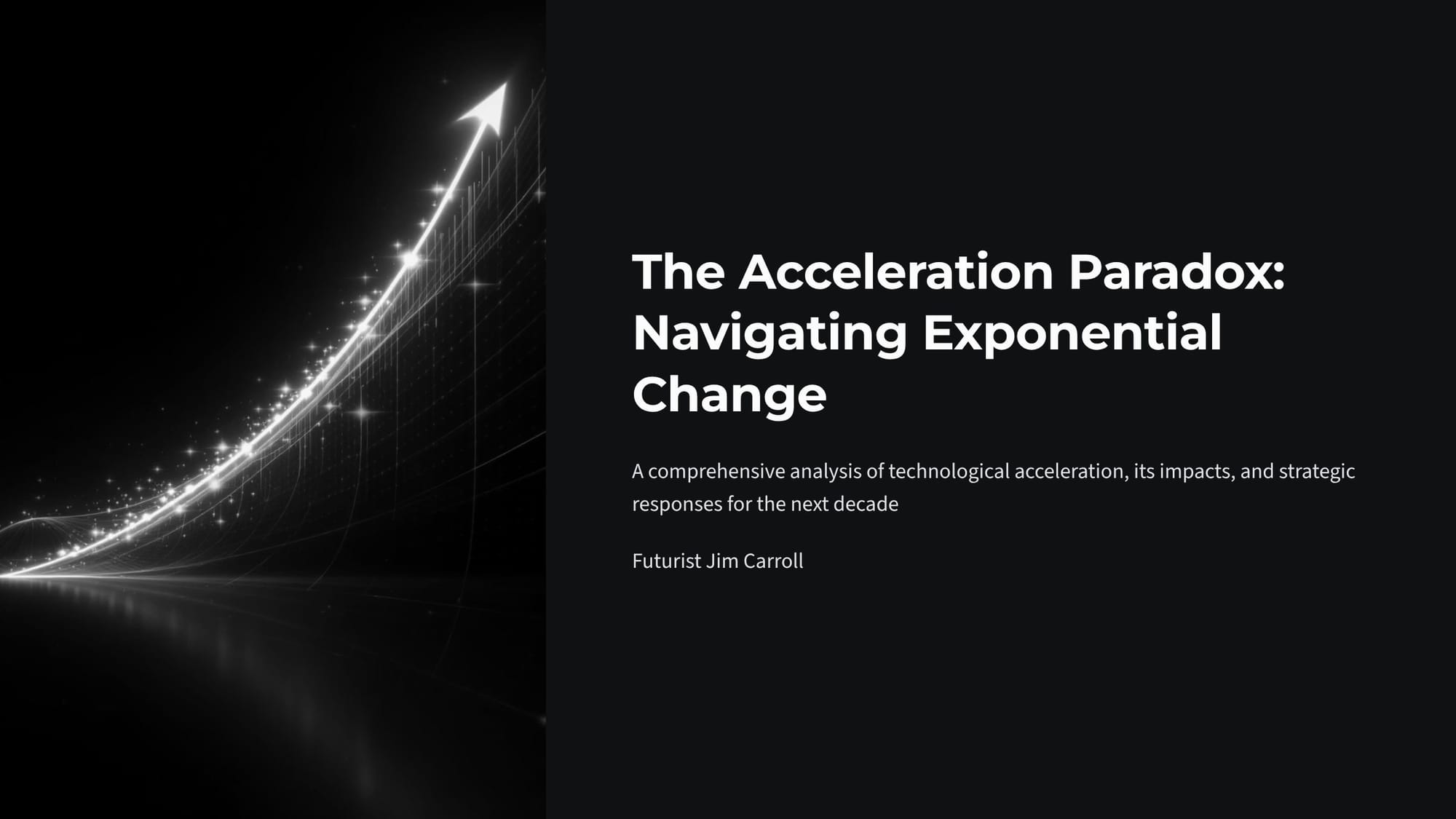
Let's start here by considering just a few of the things around us that keep moving faster.
The computational power required to train leading AI models has roughly doubled every six months since 2010. The cost of sequencing a human genome has plummeted from astronomical figures to near commodity levels. And across the globe, scientific output and intellectual property filings are reaching record highs.
These aren't isolated incidents; they are interconnected signs of a fundamental shift. This rapid progress has undeniably improved lives and boosted productivity. Yet, at the same time, the speed of change has also contributed to a climate of eroding trust, societal polarization, and a pervasive environment of misinformation. As we look to the next decade, we must prepare for an even more significant leap in speed and scale, one that will shape our future in profound ways.
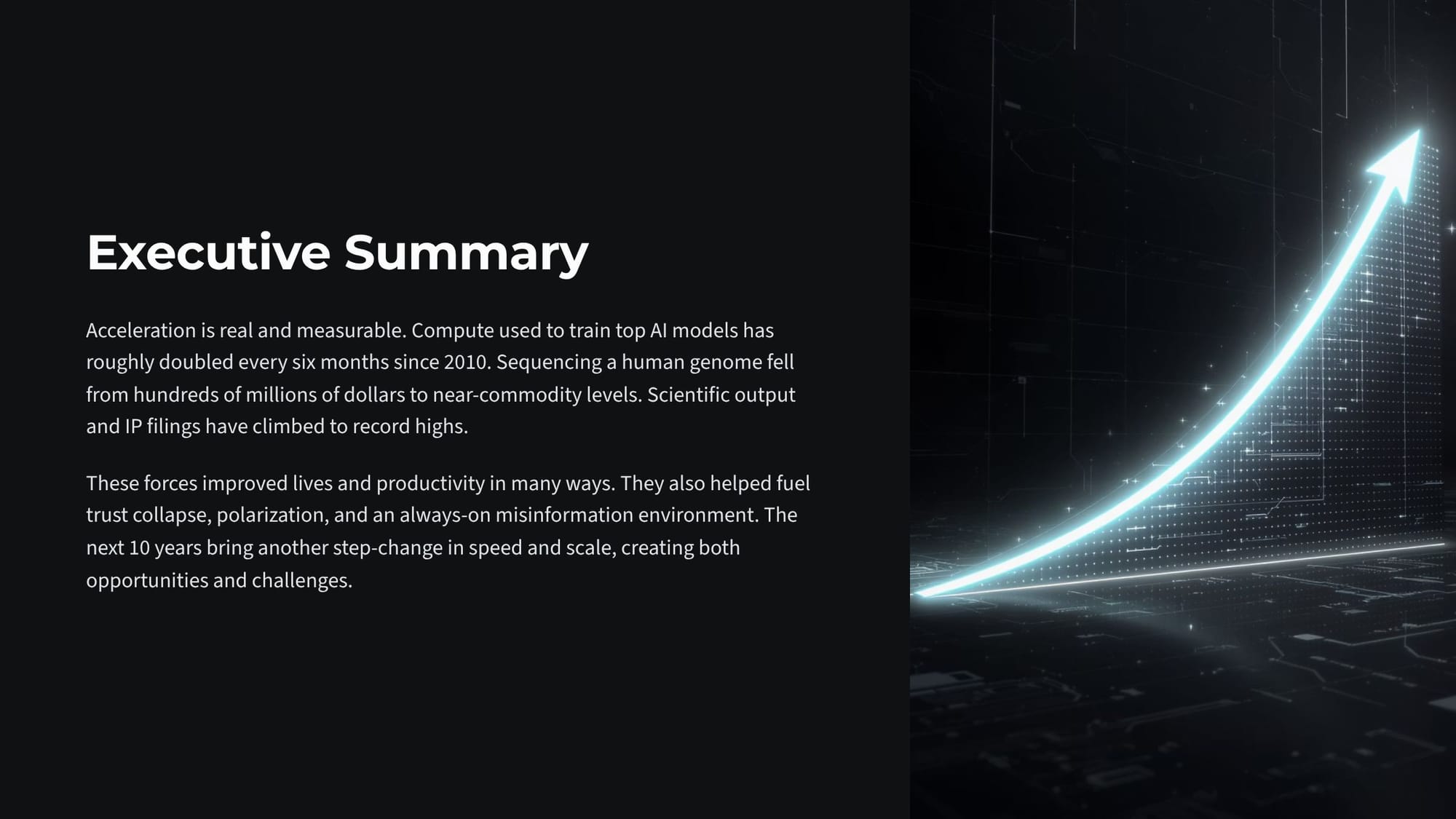
That's particularly important when we consider just a few major trends covered in this series. Take the issue of AI scale and speed - the engine of artificial intelligence is advancing at a breathtaking rate.
Since 2010, the computational resources dedicated to training cutting-edge AI have grown by a staggering 4-5x annually, effectively doubling every six months. This exponential increase in computational power is the bedrock upon which increasingly sophisticated AI is built, moving from basic pattern recognition to the complex generative models we see today. We've seen a lot of change with AI in just the last few years, but it is going to get even faster still.
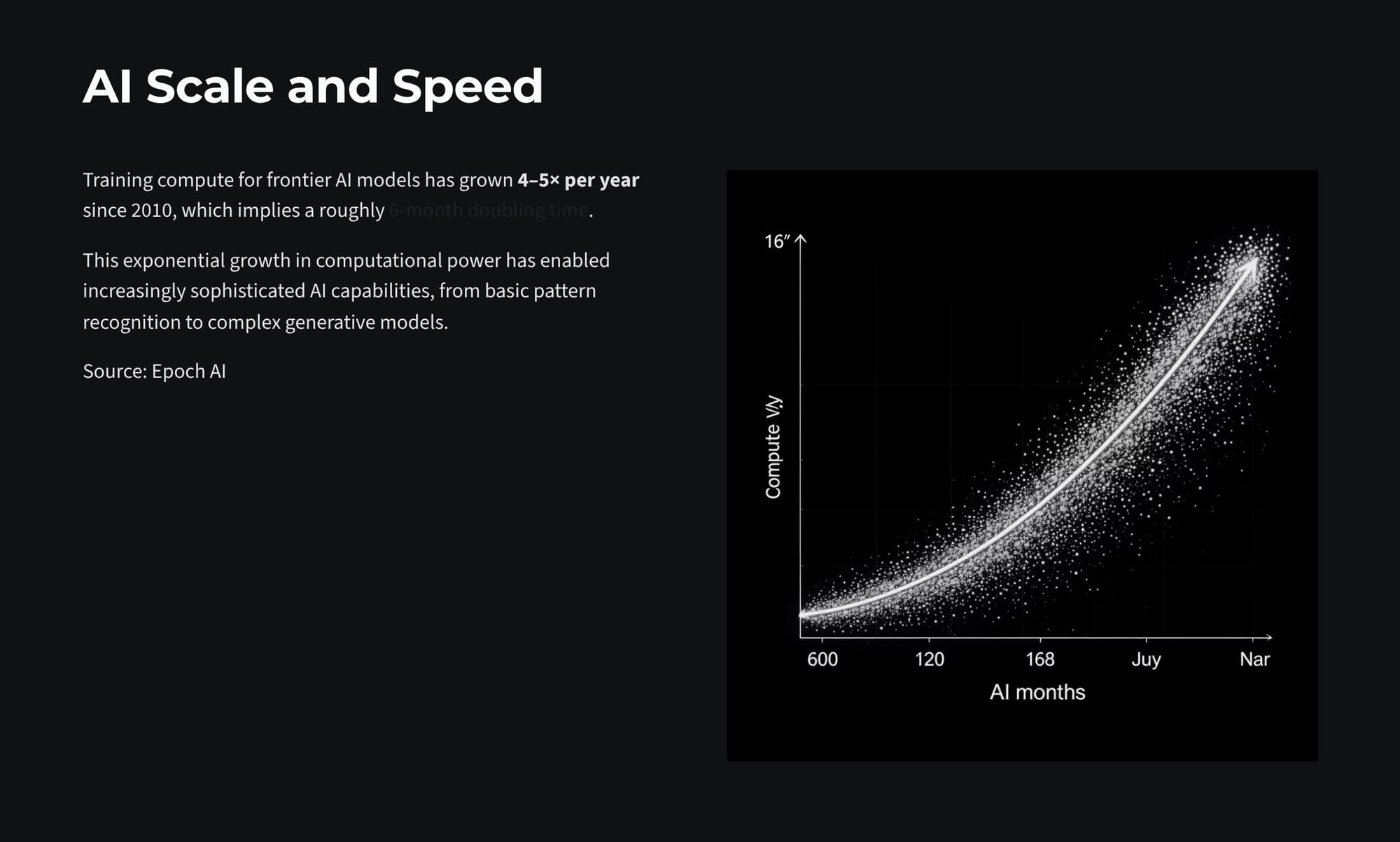
The cost collapse with biotech, which will continue to lead to stunning medical advances (for nations with the maturity to invest in the science), is one of the most profound developments of our time.
One example: the price of sequencing a human genome, once a monumental undertaking of the Human Genome Project era, has crashed by many orders of magnitude. This remarkable cost decline has democratized genomics, enabling large-scale population studies and the development of rapid diagnostic tools previously confined to the realm of imagination. It's all leading to the emergence of personalized, precision medicine, which has a profound impact on the potential for human longevity.
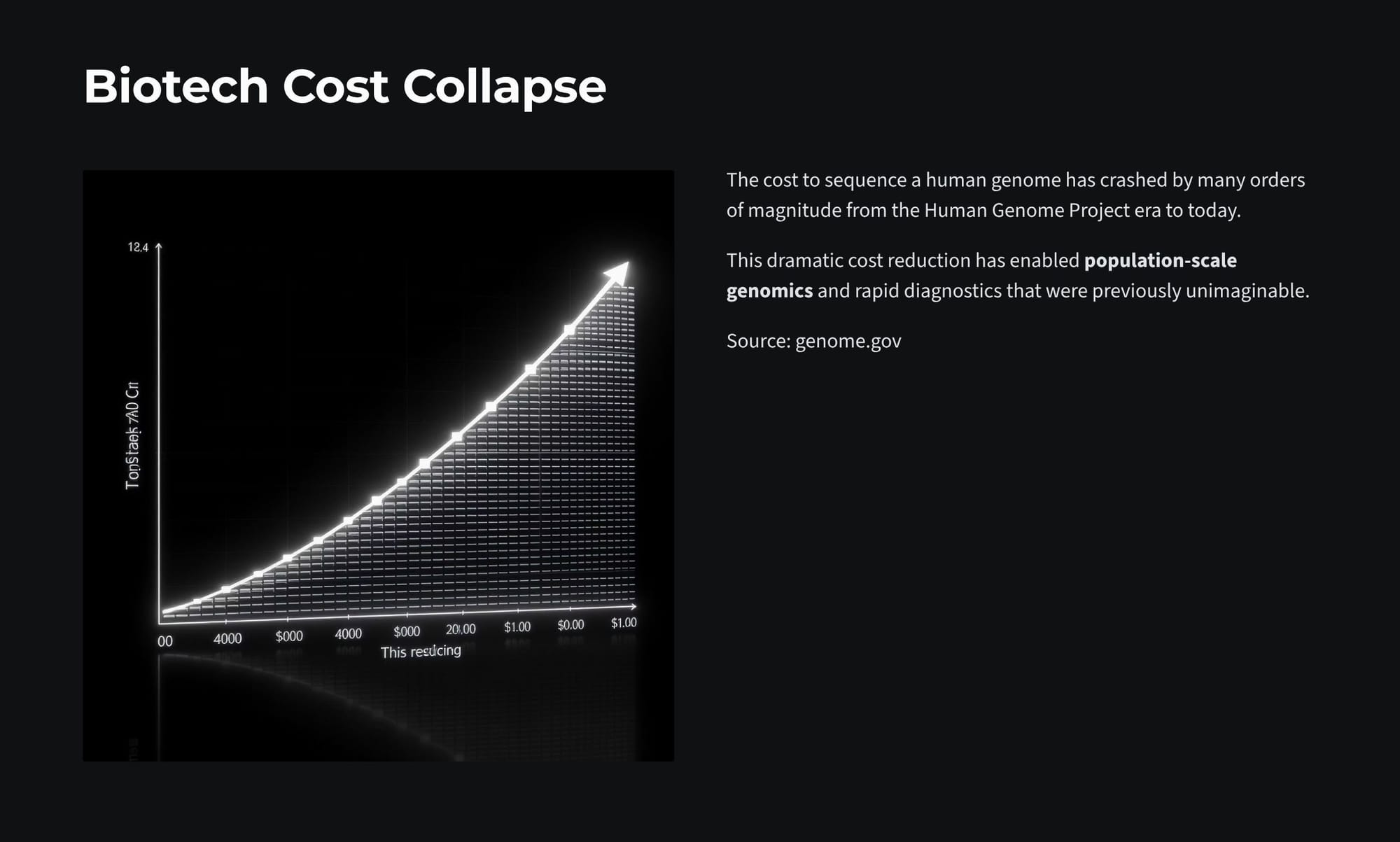
Then there is the explosion of knowledge, which is expanding at an unprecedented rate.
In 2022 alone, the world produced approximately 3.3 million scientific and engineering publications, marking a substantial 59% increase since 2012. Simultaneously, global patent filings reached new record highs in 2023 across numerous patent offices worldwide, a clear indicator of accelerating innovation and the vigorous creation of intellectual property. We are quite good at generating new ideas that take our world forward.
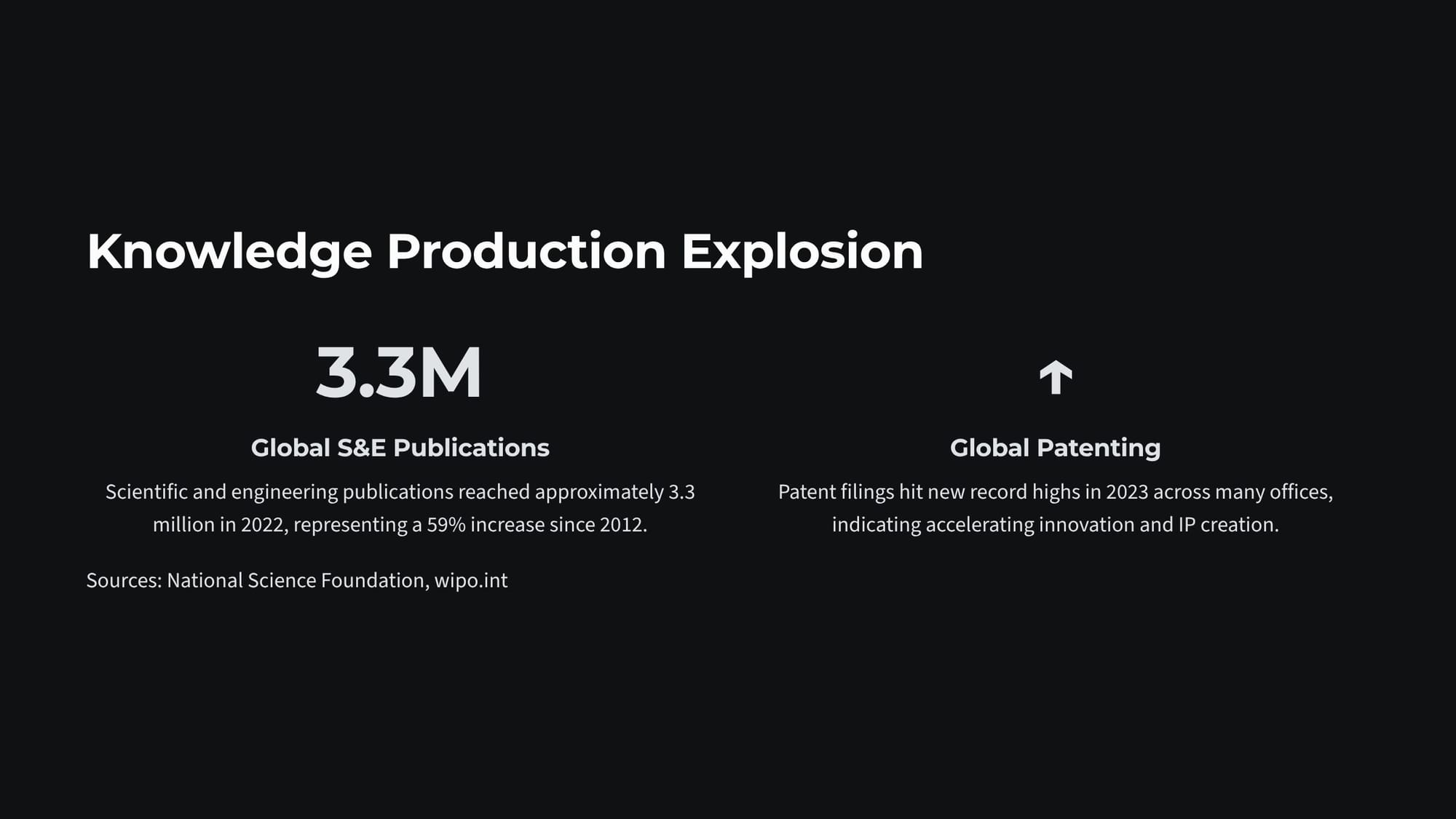
Amid all this, business models continue to shift at speed.
These technological advancements are fundamentally reshaping the economy and the very nature of business value. Intangible assets now constitute the dominant share of market value, accounting for approximately 90% of the S&P 500 value. Furthermore, market capitalization is increasingly concentrated within a small number of powerful technology platforms, reflecting a significant transition towards digital and knowledge-based business models.
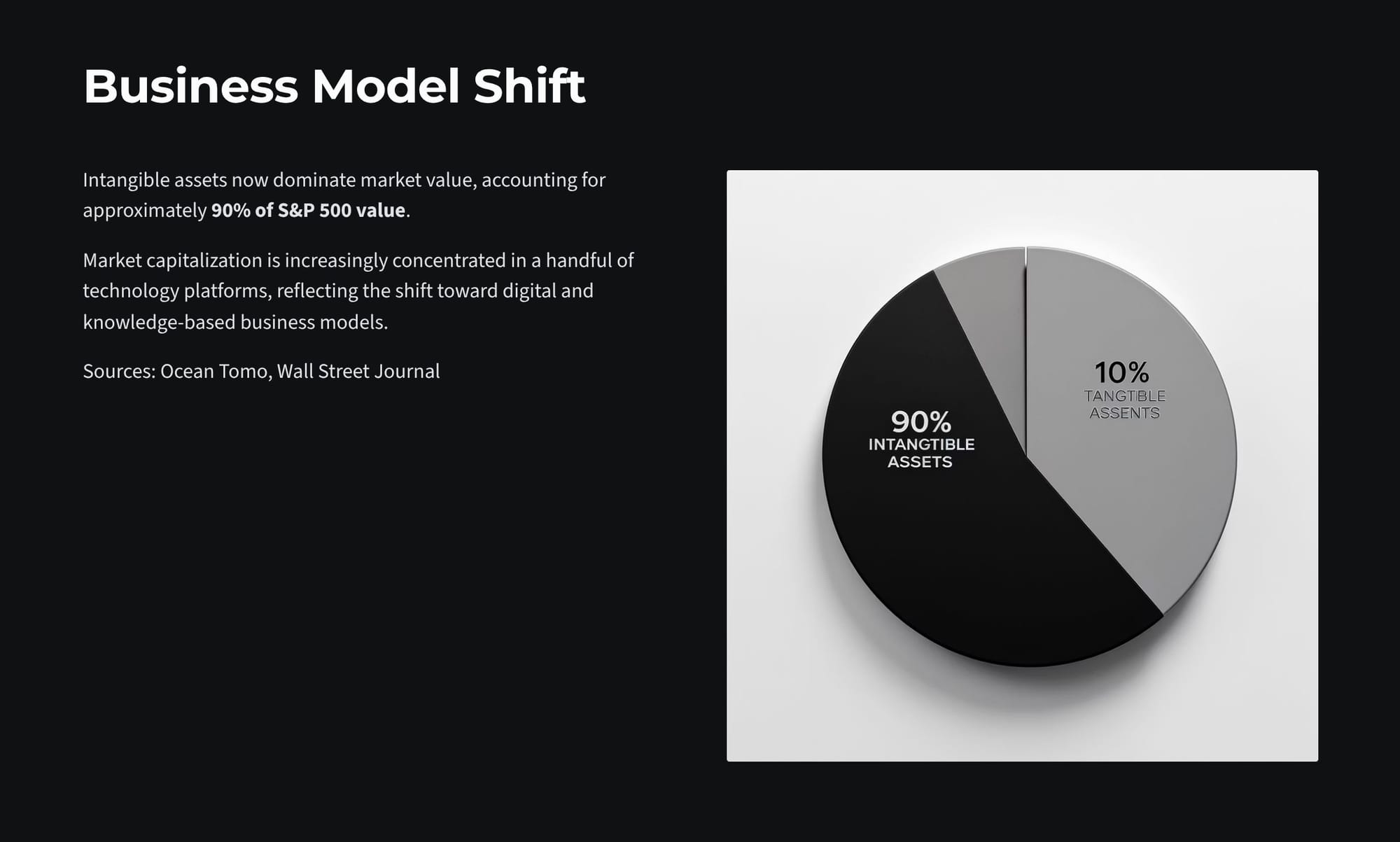
This era of rapid acceleration presents a complex tapestry of potential outcomes, a true paradox of progress.
The upside? We are already witnessing the transformative potential of these technologies in numerous positive ways:
- Breakthrough medicines: The approval of first-in-class CRISPR therapies like Casgevy in the UK and US signifies a monumental leap, moving the promise of gene editing from the laboratory to a tangible clinical reality.
- Faster vaccine platforms: The swift development and approval of new RSV vaccines for older adults and maternal immunization demonstrate the remarkable speed at which modern platform technologies can translate into public health benefits.
- Access and flexibility: The widespread adoption of hybrid work models has provided greater choice and flexibility for many workers, while simultaneously broadening the talent pools accessible to firms.
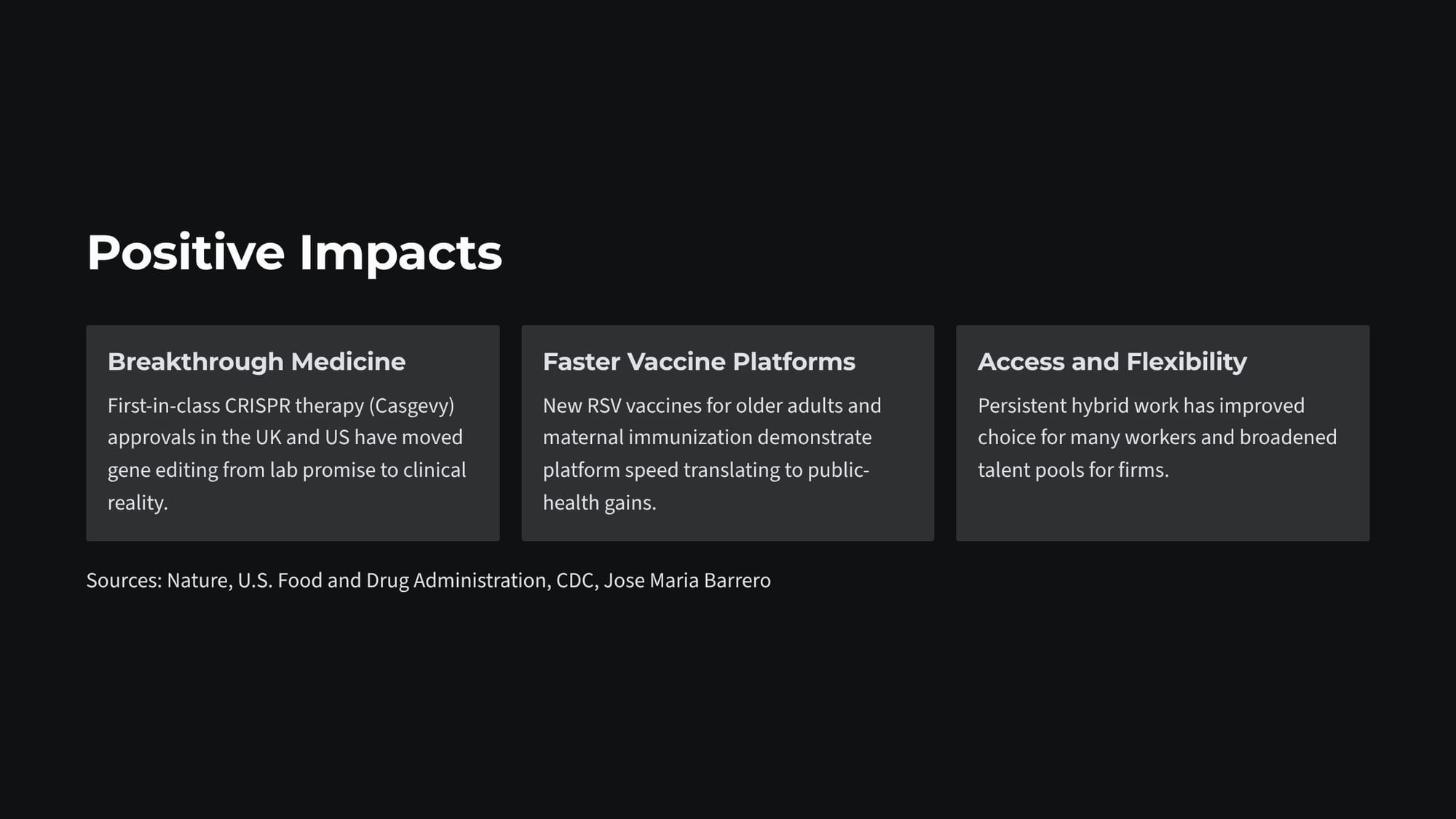
The downside? This rapid change also brings forth significant challenges and potential downsides - it seems that when people can't deal with the speed of change, they retreat into the comforting shelter of their minds, rejecting the very progress that is moving the world forward. The impact of global connectivity has allowed this retreat to be shared, where it festers into a mutually delusional reality.
- Trust erosion and polarization: Trust in traditional news sources and key institutions is alarmingly low. Societal polarization is deeply entrenched, and feelings of grievance are on the rise.
- Misinformation velocity: The spread of false information online travels "farther, faster, deeper" than the truth. The increasing volume of AI-generated content further exacerbates this issue, creating confusion and undermining informed discourse.
- Energy strain from AI: The immense computational demands of modern AI are beginning to strain energy grids. In some regions, this is leading to increased reliance on fossil fuels to meet the always-on demand, hindering decarbonization efforts.
- Skills turbulence: The rapid pace of technological change is leading to a significant disruption of the skills landscape. Employers anticipate that approximately 44% of current skills will be rendered obsolete within the next five years. Simultaneously, the demand for analytical, creative, and AI-related skills is surging at a pace that outstrips current training capacity.
The result is now such that entire nations choose to try to go back in time, rather than trying to take advantage of the potential that the future offers us.
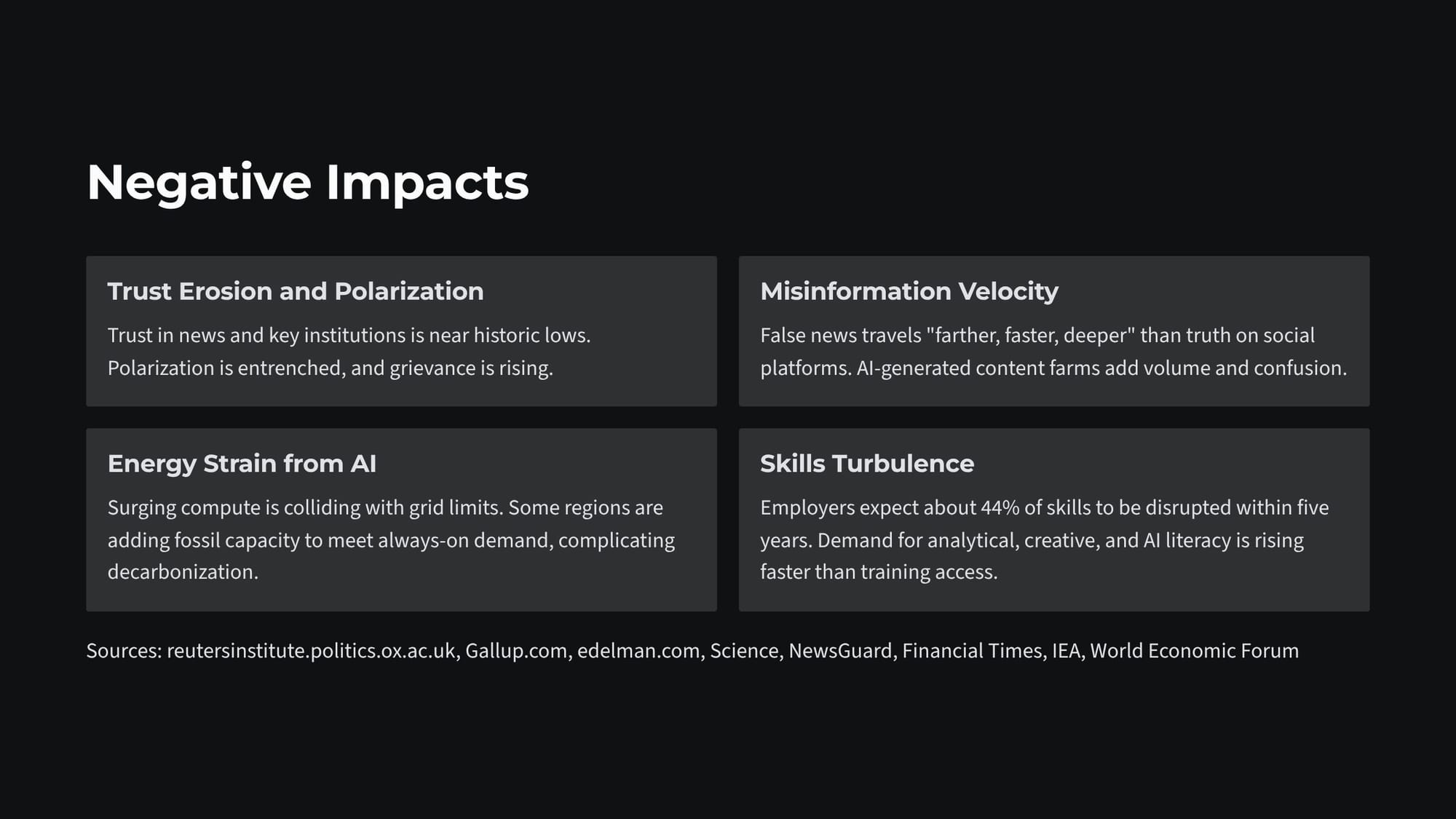
In that context, there is more speed yet to come. Consider just a few of the trends that are going to make tomorrow even faster still:
- Artificial intelligence: AI is evolving beyond generative tools towards Agentic AI – autonomous systems capable of executing complex, multi-step workflows. The energy implications are significant, with AI data center power consumption in the US projected to surge over thirtyfold by 2035.
- Biotechnology: The global biotechnology market is poised for explosive growth, projected to expand from $1.55 trillion in 2024 to $5.71 trillion by 2034. This growth will be fueled by advancements in gene editing, AI-assisted drug discovery, and the burgeoning field of regenerative medicine.
- Quantum computing: The realization of fault-tolerant quantum computers is drawing closer, with major players aiming for delivery by 2029-2030. This breakthrough technology is projected to create a market exceeding €72 billion by 2035.
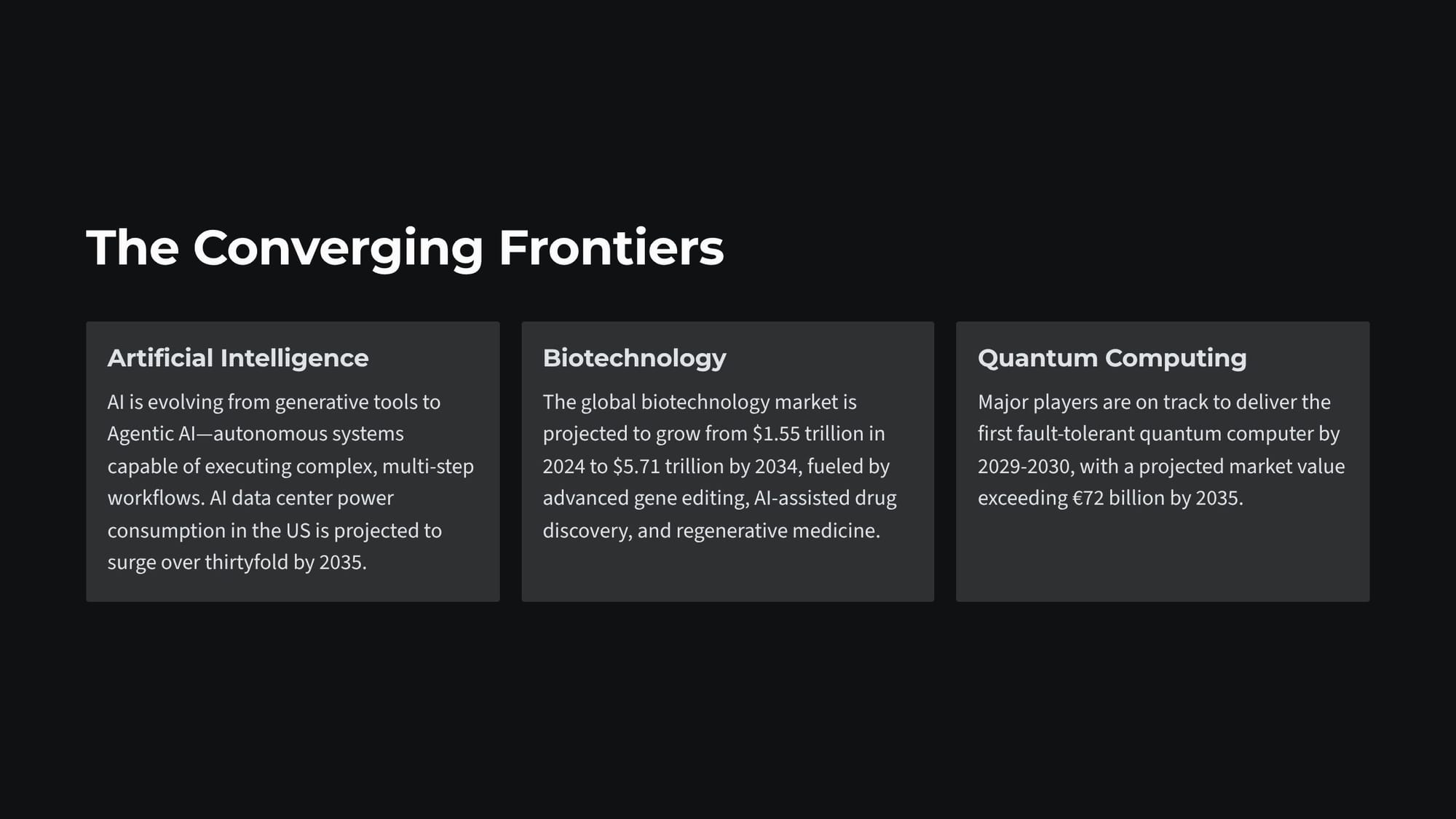
And amid all this fast change, we are going to see a lot of very fast skills obsolescence - the rapid technological advancements are having a direct and significant impact on the skills required in the workforce. The World Economic Forum projects that a substantial 39% of core skills will face disruption, highlighting the urgent need for reskilling and upskilling initiatives.
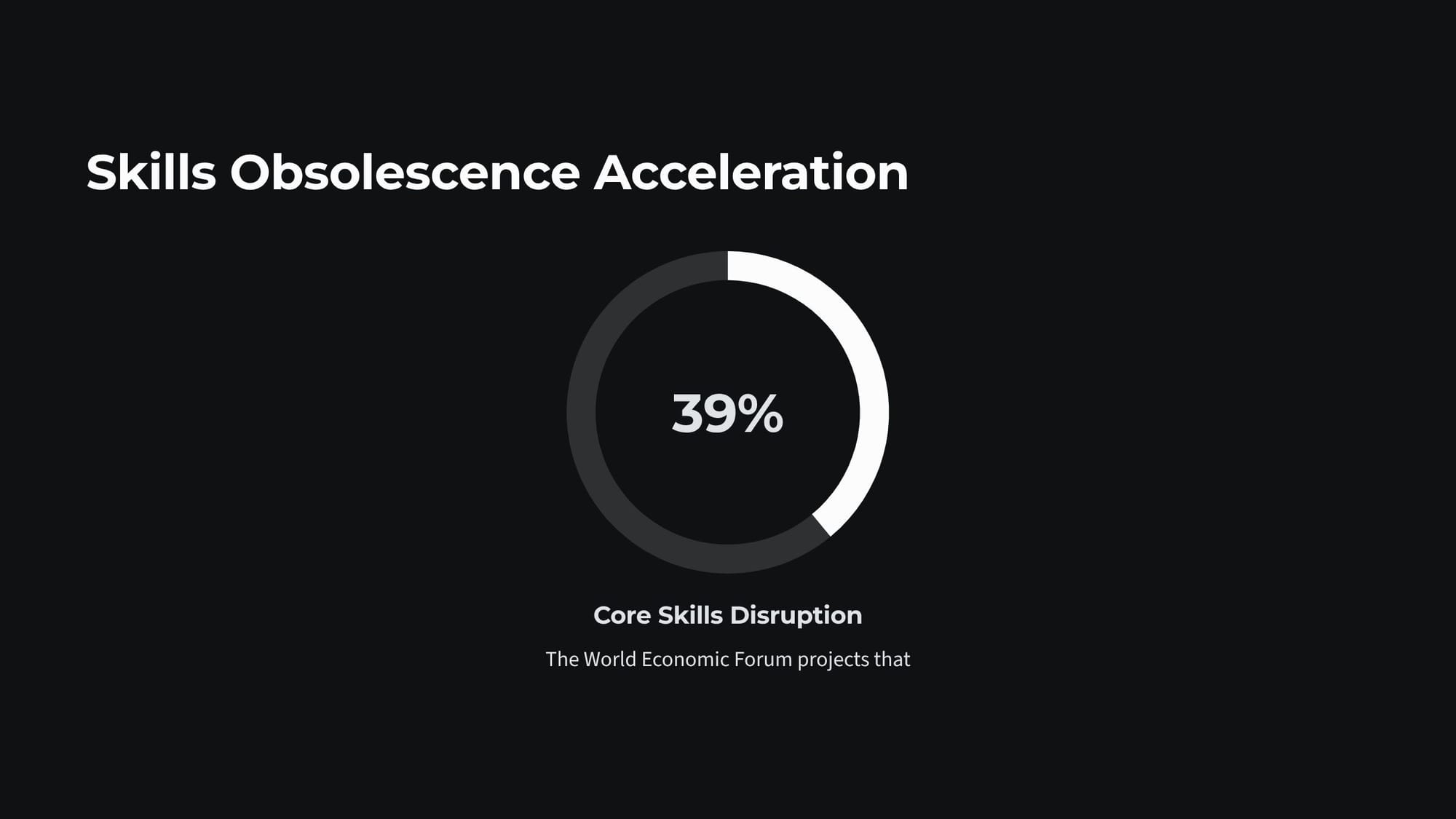
Ultimately, the accelerating pace of technological change presents us with a fundamental paradox: unprecedented opportunities alongside significant systemic challenges.
The upside of accelerating progress:
- Breakthrough innovation: We stand on the cusp of revolutionary advancements across AI, biotech (including CRISPR, vaccines, and cell therapies), and quantum computing.
- Enhanced efficiency: AI-powered automation promises to unlock new levels of productivity by automating routine tasks.
- Sustainability solutions: Emerging technologies offer the potential to address critical environmental challenges through climate tech, grid modernization, and electrification.
- Authenticity & adaptation: New approaches like verified content marketing and skills-first hiring are emerging as ways to navigate this rapidly evolving landscape.
The downside? Massive unforeseen challenges, including more:
- Workforce disruption: The rapid obsolescence of skills and the rise of AI automation will lead to significant occupational transitions and potential workforce displacement.
- Resource strain: The massive energy and cooling demands of AI data centers pose a growing concern for resource management and environmental sustainability.
- Trust erosion: The proliferation of misinformation, deepfakes, and other AI-generated content presents a serious threat to societal trust and informed decision-making.
- Cognitive & social strain: The constant connectivity and rapid influx of information can contribute to polarization, cognitive overload, and the paradoxical feeling of isolation despite increased connection.
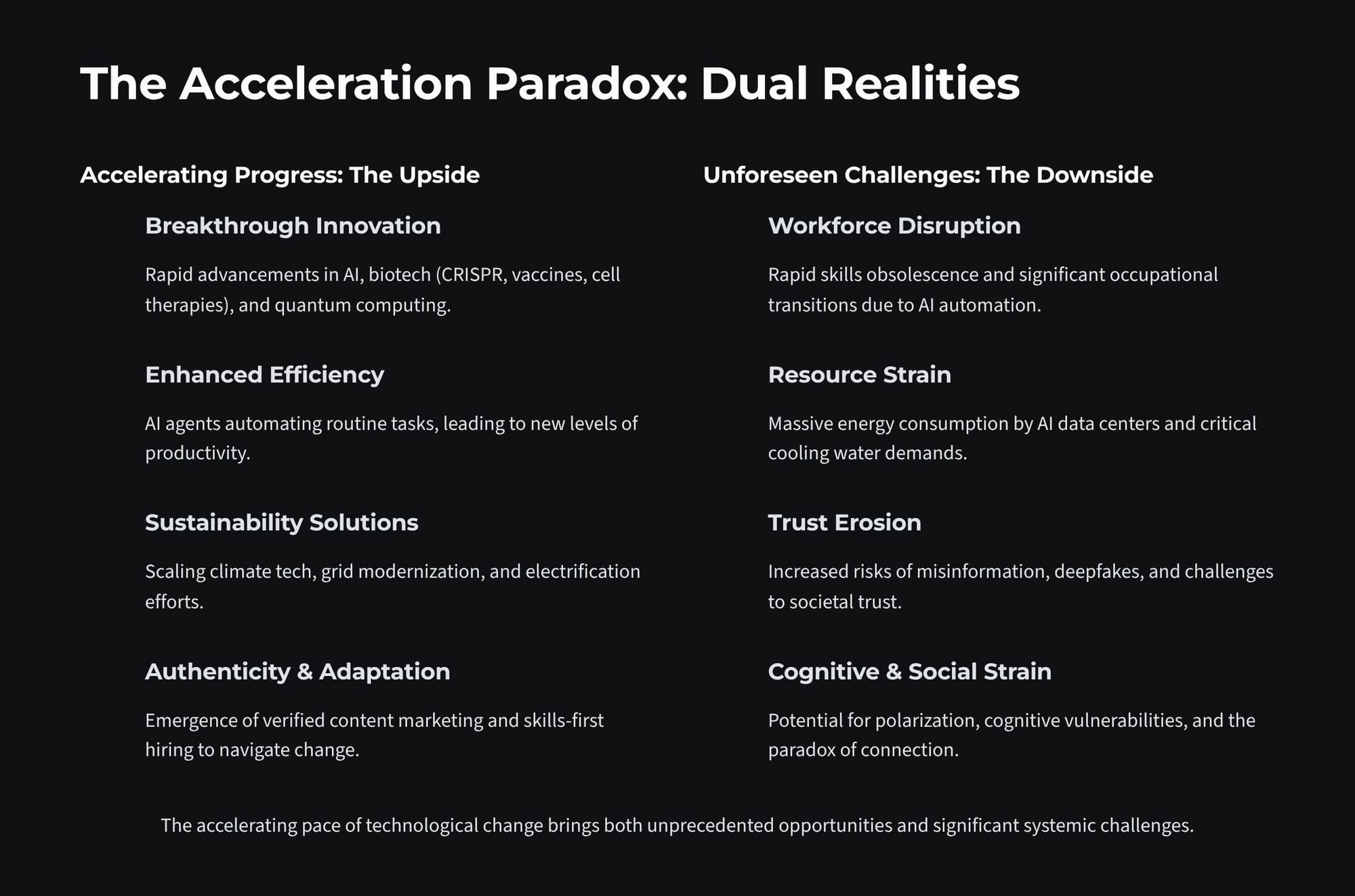
Will society be able to successfully navigate the Acceleration Paradox?
My view is some will - and many won't. My post on America's Retreat. suggests that it will be among the failures to navigate the change. On the other hand, if you examine states like the UAE, Singapore, and elsewhere, you can see incredible mindsets and governance that will let these regions navigate and own tomorrow.
Not a lot of people are talking about the paradox as one of the most significant megatrends of our time, but in my view, it is certainly the most important!
Futurist Jim Carroll has focused on the issue of 'speed' in many of his books: The Future Belongs to Those Who Are Fast; Thing Big, Start Small, Scale Fast; and Ready, Set Done. Even his book, What I Learned from Frogs in Texas, featured a quirky story of what happens when you don't align yourself with the speed of change.

